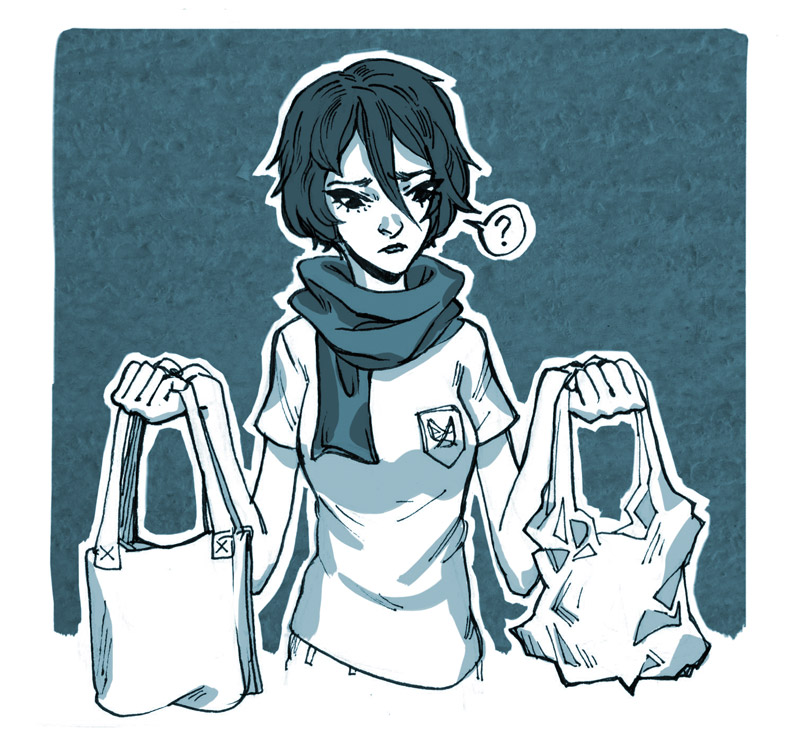
“Would you like a paper bag for ten cents?” is now a common phrase at checkouts in San Mateo County retail stores. On Nov. 6, 2012, the San Mateo County Board of Supervisors passed the Reusable Bag Ordinance, which went into effect on April 22, 2013.
The Board of Supervisors found that retail plastic bags are harmful to the environment and a public nuisance, and consequently declared that stores cannot distribute plastic bags to customers and may only distribute paper bags at a cost of 10 cents. Failure to comply to these regulations results in fines ranging from $100 to $500.
The ordinance extends to 25 cities within San Mateo County, including Burlingame, Half Moon Bay and Redwood City. Some stores are exempt from the ordinance. According to the San Mateo County website, “Exemptions apply for restaurants and nonprofit charitable organizations, as well as businesses that use produce and meat bags, garment cleaning bags and pharmaceutical bags.”
The San Mateo County Board of Supervisors created the Reusable Bag Ordinance in order to reduce plastic litter and waste. According to the San Mateo County Health System, “20 billion single-use plastic grocery bags are used every year in California, and most end up in landfills, or as litter on land and in our waterways.” Aragon’s AP Environmental Science teacher Amy Schwartz says, “Plastics don’t break down, so technically they don’t ever go away, so you might get smaller and smaller pieces of plastic.”
The Aragon community has noticed change. “Living in San Francisco, I definitely noticed [changes]. I bring my own bags to grocery stores,” says Schwartz. “Since [San Francisco’s] ban, so many other stores sell their own reusable bags, and it does seem like more people are bringing their own bags.”
On the other hand, sophomore Yulan Chen says, “I have not noticed any direct impact, except for seeing more people scramble to their car from the checkout line to grab reusable bags.”
During the summer, mixed reactions arose in response to the bag ban. Many students agree that the bag ban is a good measure to help the environment. “I think they should continue the bag tax just because it is important to reuse the bag,” says freshman Lauren Campbell. “It’s such a waste throwing them away, and it helps people realize that it does make a difference.”
“Not a lot of people carry around their own reusable bags—I know I don’t. It’s sometimes inconvenient, but I get it because plastic is not biodegradable,” says junior Valerie Chen.
San Mateo County is not the first location to implement a bag ban. In May 2012, Los Angeles implemented a similar bag ban. Other cities outside of California, such as Seattle, Denver and Portland, also have a similar regulation. The bag ban in Seattle, which went into effect in July 2012, resulted in significant change. According to the Seattle Public Utilities Plastic Carryout Bag Ban Survey, 49 percent of retailers saw a decrease in the total plastic bags distributed due to the ordinance. The findings stated that more grocery store shoppers are bringing reuseable bags and that roughly one-third of stores report cost increases.
The Reusable Bag Ordinance is a strong step forward in environmental progress. The Aragon community sees both the benefits and the obstacles the ban poses. Schwartz says, “The bag tax is a good start in terms of dealing with a series of environmental issues…I think it’s okay to wait and see how this one is working out.”




